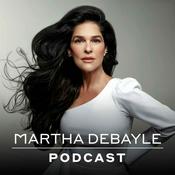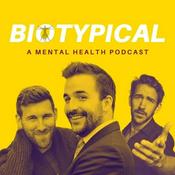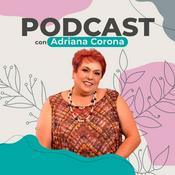67 episodios
- Andrew Humberman BioSnap a weekly updated Biography.
Andrew Huberman, the Stanford neuroscientist behind the worlds top health podcast, dropped a bombshell episode on February 12 titled Essentials The Science of Love Desire and Attachment on HubermanLab.com and YouTube, diving deep into how childhood bonds shape adult romance brain circuits for empathy and desire plus libido boosters like maca root Tongkat Ali and tribulus. PsyPost.org highlighted it the same day unpacking Hubermans take on dopamine as craving fuel not just pleasure the insula brains empathy hub and Gottman Labs four horsemen of doomed relationships criticism defensiveness stonewalling and the killer contempt dubbed relationships sulfuric acid. This release timed perfectly for Valentines buzz could cement his status as go-to guru for emotional wiring with tools to hack attachment styles from anxious-avoidant roots via Mary Ainsworths Strange Situation experiments. Meanwhile Kalshi.com launched a quirky prediction market betting whether Huberman will utter marijuana weed or cannabis on the upcoming TBPN Podcast sparking online chatter about his next hot take though no air date or confirmation yet. No public appearances business moves or fresh social mentions popped in the last few days his site teases the upcoming Protocols book preorder on brain hacks mood and performance but thats ongoing hype not new. Fans rave in newsletter comments calling it life-changing yet verified scoops stay slim to podcasts core output signaling Hubermans laser focus on science over spotlight as Valentines looms.
Get the best deals https://amzn.to/3ODvOta
This content was created in partnership and with the help of Artificial Intelligence AI - Andrew Humberman BioSnap a weekly updated Biography.
Andrew Huberman, the Stanford neuroscientist and Huberman Lab podcast host, made waves this week with a high-profile guest spot on the SiriusXM podcast SmartLess, dropping February 9 where he dished on gila monsters, flabby brains, and the art of winking alongside hosts Jason Bateman, Sean Hayes, and Will Arnett, according to Apple Podcasts listings. Just a day prior on February 8, he popped up in FIS Snowboarding's YouTube live show I Love Snow Real Talk, fueling buzz among fans blending his neuroscience tips with winter sports chatter, per the video description.
Rewinding to February 6, Huberman joined behavioral scientist Maya Shankar for a keynote at the Eudemonia Summit 2025 titled The Neuroscience of Peak Performance, diving deep into neuroplasticity, fear-driven change, and rewiring the brain through sleep and deliberate practice, as detailed on Eudemonias site. This convo could cement his role as a go-to voice on lifelong optimization.
On February 3, he delivered a compelling presentation The Risk of Doing Nothing at the University of Californias Office of the President in Oakland, urging action on health basics, while Mens Journal spotlighted his five pillars of wellness sleep, sunlight, movement, nutrition, and relationships in a guide pulling from his recent talks, emphasizing no-fuss foundations over trendy biohacks.
Earlier that day, Willamette Week reported a tangential link as Portland psychiatrist Paul Conti, Hubermans 2023 podcast collaborator, surfaced in Jeffrey Epstein emails, though Huberman himself stays clear of that shadow. Katie Courics site revisited CBS News January 28 addition of Huberman as an expert contributor alongside Peter Attia and Mark Hyman, critiquing their promo of pricey gadgets like cold plunges amid commercial ties, but no fresh backlash emerged.
No major business moves or social media flares popped in the last few days, though his site hypes the upcoming Protocols book preorder. Hubermans star keeps rising, platforming science with that insider edge, but watchdogs whisper about the influencer-expert blur. Word count 348.
Get the best deals https://amzn.to/3ODvOta
This content was created in partnership and with the help of Artificial Intelligence AI - Andrew Humberman BioSnap a weekly updated Biography.
Andrew Huberman, the Stanford neuroscientist and Huberman Lab podcast host, dropped a pair of fresh episodes this week that have fans buzzing. On February 2, he welcomed Dr. Read Montague to unpack how dopamine and serotonin drive decisions, motivation, and learning, diving into real-time brain scans and AI parallels like AlphaGo in a chat laced with personal anecdotes from their 15-year reconnection, as detailed on the Huberman Lab site and Singju Post transcript. Just days later on February 5, Huberman released an Essentials episode with movement guru Ido Portal, breaking down nervous system tricks for better motion, panoramic vision drills, and playful exploration to rewire habits, straight from hubermanlab.com.
Business-wise, Mens Journal spotlighted Hubermans five core health pillars sleep, sunlight, movement, nutrition, and relationships on February 3, pulling from his podcast wisdom to pitch them as no-nonsense basics over trendy biohacks. A viral YouTube short from Iain Barton Shorts that same day clipped Huberman on neuroplasticity focus exercises, racking up views with his tips for daily visual drills to sharpen concentration.
Hes also in the medias crosshairs amid the Epstein files fallout. Plant Based News flagged him January 31 as a wellness bro tied to Peter Attia, whose 1700-plus Epstein mentions including flirty emails surfaced recently, though Huberman himself faces no direct links there. Katie Couric Media critiqued on January 28 his CBS News contributor gig alongside Attia and Mark Hyman, slamming their supplement-pushing protocols as overhyped with conflicts, yet CBS kept them post-scandal. Willamette Week noted on February 3 his 2023 podcast collab with Epstein-linked psychiatrist Paul Conti, stirring guilt-by-association whispers. No public appearances or direct social mentions popped in the last few days, but his feeds hum with blueprint emails to over a million subs. Speculation swirls on long-term bio rep hits from the influencer scrutiny, but Hubermans output stays relentless.
Get the best deals https://amzn.to/3ODvOta
This content was created in partnership and with the help of Artificial Intelligence AI - Andrew Humberman BioSnap a weekly updated Biography.
Andrew Huberman, the Stanford neuroscientist behind the massively popular Huberman Lab podcast, just landed a blockbuster gig as one of 19 new contributors to CBS News, announced January 27 by The Futon Critic. This move catapults him into mainstream TV, rubbing shoulders with heavyweights like Peter Attia and Niall Ferguson to tackle tough questions on politics, health, and science—think his expertise on brain plasticity, stress, and vision repair shining in prime time. CBS News tweeted the star-studded roster, tagging his Huberman Lab handle, signaling a huge biographical pivot from lab coats to broadcast stardom.
Hot on that heel, Word on Fire published a glowing profile on January 27 hailing Huberman as one of the most famous scientists alive, diving into his neuroscience breakthroughs and tenured Stanford perch in neurobiology and ophthalmology. No public appearances popped in the last few days, but his podcast dropped a fresh episode yesterday, February 2, via HubermanLab.com, unpacking how dopamine and serotonin drive decisions, motivation, and learning—a neuro goldmine that could reshape self-help circles long-term.
Business-wise, whispers from Fox News on January 8 noted health experts buzzing over Huberman backing the Trump admin's revamped food pyramid, though that's older tea with no fresh ripples. His lab keeps churning peer-reviewed papers in Nature and Science, and that upcoming book, Protocols: An Operating Manual for the Human Body, looms as a potential bestseller. Social media stayed quiet on direct mentions, but the CBS tag lit up timelines. No unconfirmed rumors or scandals—just a quiet power play positioning Huberman as the go-to brain guy for the masses. Eyes peeled for his TV debut; this guy's trajectory screams icon status.
Get the best deals https://amzn.to/3ODvOta
This content was created in partnership and with the help of Artificial Intelligence AI - Andrew Humberman BioSnap a weekly updated Biography.
Andrew Huberman, the Stanford neuroscientist behind the blockbuster Huberman Lab podcast, just landed a high-profile gig as one of 19 new contributors to CBS News, announced January 27 by CBS News itself. This move cements his star power, blending his brain science cred with mainstream media reach, potentially amplifying his influence on public health chats for years to come. Around the same time, Word on Fire published a buzzy piece on God, science, and Huberman, hailing him as one of the most famous scientists alive for his neuroscience breakthroughs that snagged him tenure at Stanford. No public appearances popped up in the last few days, but his podcast stayed hot with the January 29 release of Huberman Lab Essentials episode Using Play to Rewire and Improve Your Brain, posted on hubermanlab.com and YouTube, where he breaks down how playful mindsets boost neuroplasticity via low-stakes fun like dynamic sports or chess, name-dropping Nobel physicist Richard Feynman as a playful genius. Shortform quickly summarized it, spotlighting play's opioid-driven brain rewards for lifelong learning. Business-wise, his upcoming book Protocols: An Operating Manual for the Human Body is hyped on the Huberman Lab site for preorder, promising protocols to hack mood, energy, and skills. Social media buzz is light, mostly fans raving on the site about his Nobel-worthy pod, with no fresh mentions or drama. Older noise like his Trump admin food pyramid nod from Fox News on January 8 feels distant. Hubermans keeping it lab-focused, but that CBS nod screams biographical milestone. Word count: 378
Get the best deals https://amzn.to/3ODvOta
This content was created in partnership and with the help of Artificial Intelligence AI
Más podcasts de Educación
Podcasts a la moda de Educación
Acerca de Biography Flash: Andrew Huberman (unofficial)
Andrew Huberman: Decoding the Brain, One Podcast Episode at a Time Andrew Huberman isn't your average neuroscientist. He's not confined to dusty labs or cryptic scientific papers. Instead, he's become a digital guru, using the power of podcasts and social media to unlock the secrets of the brain for the masses. With his infectious enthusiasm and knack for translating complex science into bite-sized takeaways, Huberman has garnered a loyal following on the "Huberman Lab" podcast, reaching millions worldwide. But who is the man behind the microphone, and what journey led him to become the scientific rockstar he is today? From Skateboarding to Stanford: Born in Palo Alto, California, in 1975, Huberman's path might seem unconventional. His early years were fueled by a love for skateboarding and a fascination with human behavior. Yet, a pivotal encounter with Ben Barres, a renowned neuroscientist at Stanford, ignited a passion for exploring the inner workings of the mind. Huberman pursued this passion with dedication, earning degrees in psychology, neuroscience, and ophthalmology. He then delved into the world of research, making significant contributions to our understanding of vision, brain development, and the neural basis of learning and memory. A Scientific Detective Story: Huberman's research career was driven by a deep curiosity about the brain's potential. He wasn't content with simply identifying brain structures or circuits; he wanted to understand how they influence our thoughts, emotions, and behaviors. His work focused on uncovering the intricate connections between brain activity, sensory input, and our internal systems, shedding light on how we perceive the world and regulate our emotional states. From Lab Bench to Podcast Booth: The turning point in Huberman's life came in 2020. Facing burnout and frustrated by the esoteric nature of scientific communication, he decided to bridge the gap between academia and the public. He launched the "Huberman Lab" podcast, using his gift for storytelling and his relatable personality to translate complex scientific concepts into actionable tools for everyday life. His episodes delve into fascinating topics like stress management, sleep optimization, focus enhancement, and overcoming addiction, offering practical strategies based on the latest research. The Science of Being Human: The success of the "Huberman Lab" podcast stems from Huberman's unique approach. He doesn't simply lecture; he engages, questions, and shares his own experiences. He invites listeners into his scientific detective story, showcasing the beauty and complexity of the brain while offering practical tools for hacking their own biology. Whether it's explaining the neurochemical basis of happiness or providing tips for optimizing sleep cycles, Huberman empowers listeners to take control of their mental and emotional well-being. Beyond the Podcast: Huberman's influence extends beyond the digital realm. He regularly gives talks and workshops, bringing his science-backed insights to live audiences. He also uses his platform to advocate for mental health awareness and research funding. A Legacy in the Making: Andrew Huberman's story is far from over. With his insatiable curiosity, engaging personality, and commitment to scientific translation, he's poised to continue shaping our understanding of the brain and empowering individuals to unlock their full potential. He's a reminder that the secrets of the mind are not just for scientists in ivory towers; they are within reach, waiting to be discovered and utilized for a happier, healthier life. Thanks for listening to Quiet Please. Remember to like and share wherever you get your podcasts.
Sitio web del podcastEscucha Biography Flash: Andrew Huberman (unofficial), All Ears English Podcast y muchos más podcasts de todo el mundo con la aplicación de radio.net

Descarga la app gratuita: radio.net
- Añadir radios y podcasts a favoritos
- Transmisión por Wi-Fi y Bluetooth
- Carplay & Android Auto compatible
- Muchas otras funciones de la app
Descarga la app gratuita: radio.net
- Añadir radios y podcasts a favoritos
- Transmisión por Wi-Fi y Bluetooth
- Carplay & Android Auto compatible
- Muchas otras funciones de la app


Biography Flash: Andrew Huberman (unofficial)
Escanea el código,
Descarga la app,
Escucha.
Descarga la app,
Escucha.

































